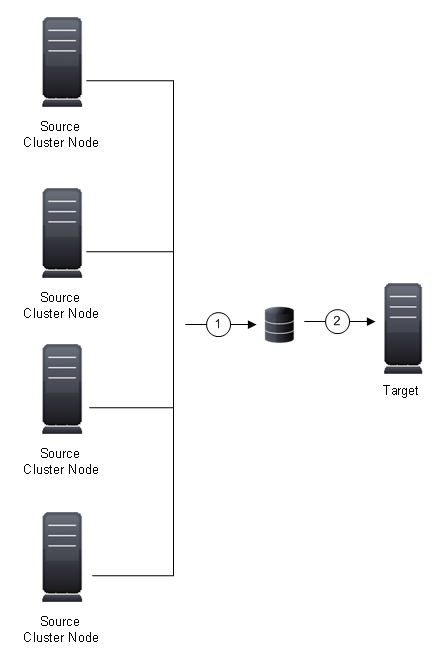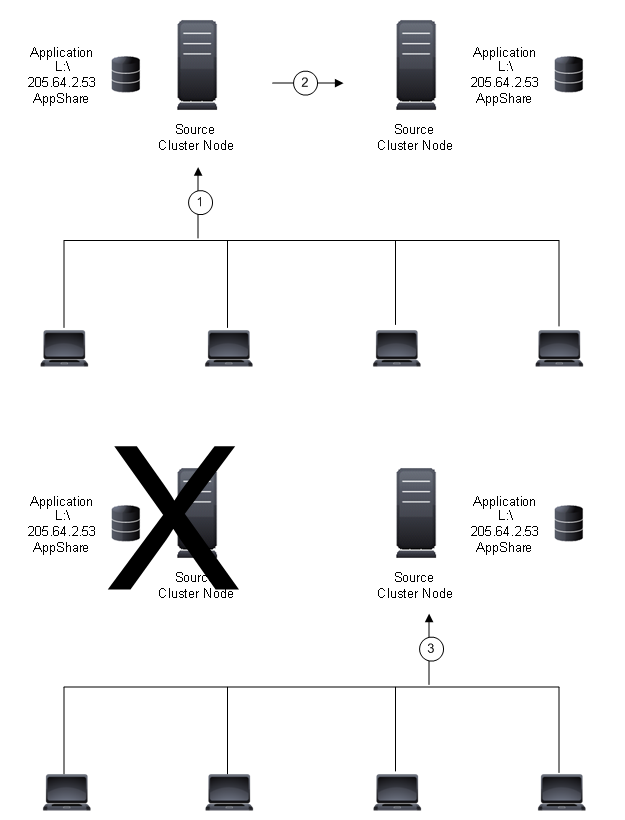

|
In a standard cluster configuration, a single copy of data resides on a SCSI disk that is shared between cluster nodes. Data is available without users knowing which node owns a cluster resource. MSCS handles failover between nodes of the cluster. By adding Double-Take Availability to this cluster environment, you can further protect your data by replicating the cluster data to a target. In the event the cluster fails, your cluster data will be available on the target.

In a GeoCluster configuration, data is stored on volumes local to each node and replicated to each node in the cluster using Double-Take Availability. This eliminates the single point of failure of a standard cluster, shared disk, configuration. With GeoCluster, resources and groups are handled in the same manner as a standard cluster. Instead of assigning one group by SCSI drive, you assign one group per logical volume. If a server, disk, group, or network interface should fail, MSCS relocates the failed group to another node, which contains the replicated copy of the data, thus maintaining availability.
